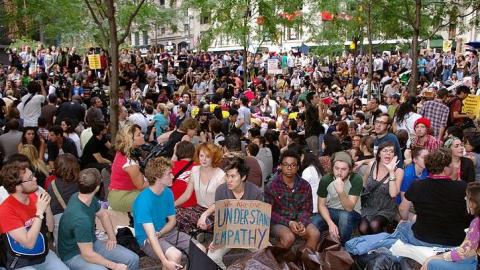Why the Poor Oppose Income Redistribution

What’s the Latest Development?
With Occupy Wall Street getting more attention every day, it may seem as though Americans are ready for income redistribution policies instead of tax breaks for the wealthy. Or maybe not. Data shows that public support for redistribution has dropped steadily during the recession: “For years, the General Social Survey has asked individuals whether ‘government should reduce income differences between the rich and the poor.’ Agreement with this statement dropped dramatically between 2008 and 2010, the two most recent years of data available.”
What’s the Big Idea?
Why do people seemingly act against their own economic self-interest by opposing income redistribution policies? Princeton economics professor Ilyana Kuziemko says people nearest the bottom are afraid redistribution will allow their neighbors to catch up or even leapfrog their own achievements. The phenomenon is known as ‘last place aversion’. Still, Kuziemko says that by focusing its ire on the super-rich, Occupy Wall Street may overcome people’s tendency to fear being outpaced by those immediately below them.





